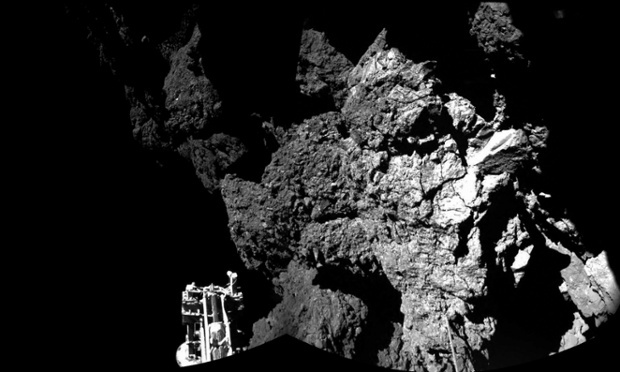Every morning, we scour the Internet and vet what we believe are the five things you absolutely need to know for the day. Join this mailing list to receive 5 things you absolutely must know today every morning, Monday to Friday.
***
China-U.S. climate change agreement puts pressure on Harper to act
On the heels of a landmark climate-change agreement between China and the U.S., the likes of which were aggressive enough to shock environmentalists, sits Canada. Sits Stephen Harper. Whatever pressure Harper feels when political powerhouses and known superpolluters China and the U.S. do something, he’s feeling it now, we hope. U.S. President Barack Obama announced Wednesday to cut his country’s greenhouse gas emissions by 26 per cent from 2005 levels by the year 2025. And China has agreed to cap emissions by 2030. “No matter what they say, no country is going to take actions that are going to deliberately destroy jobs and growth in their country,” said Harper, in June of this year. “And we are just a little more frank about that, but that is the approach that every country is seeking.” Canada can no longer say, the U.S. isn’t so we don’t have to, either. What our move will be, I think most of us can guess. But a little pressure is often a good thing. [Source: CBC]
Russia to deploy bombers amid escalating tension with West
Russia will be sending long-range bombers out on patrol missions in the Arctic Ocean, the Caribbean, and the Gulf of Mexico, according to its military. The brazen move comes as tensions between Russia and the West continue to escalate in the battlefield that is Ukraine. NATO is accusing Moscow of delivering tanks to rebel-held areas of Ukraine. If the reports are to be believed, there has been a stream of tanks and other artillery flowing into Ukraine from Russia for the past few days. Moscow denies this. Russia’s Defence Minister Sergei Shoigu told Associated Press the bombers are being deployed to protect the country’s borders, adding that, “in the current situation we have to maintain military presence in the western Atlantic and eastern Pacific, as well as the Caribbean and the Gulf of Mexico.” Pundits remain talkative, but that’s it. They’re not trying to spread fear or hyperbolize about the next Cold War too much. Yet. For now, let’s focus on ending the bloodshed in the Ukraine. [Source: Associated Press]
Rosetta lander bounced one kilometre back into space, settled in shadow of cliff
Philae has landed, people. It’s hurdling through space at more than 34,000 miles per hour right now, its claws gripping the Comet 67P/Churyumov-Gerasimenko. There were reports of tears being shed in the control room at the European Space Agency, when, after the lander bounced back into space one kilometre, then again a shorter distance, it settled in the crook of a cliff about 1,000 metres from its intended target. The mission was successful. Philae has already taken and sent some pictures of the comet to ESA. The cliff it landed near is shielding it from sunlight, so scientists are concerned its battery may run out sooner than anticipated. They may try to move it to a brighter location, but there’s uncertainty and risk associated with that maneuver. [Source: BBC]
Republican Congress pushes to fast track Keystone XL approval
The U.S. Congress, now under Republican rule, is pushing as hard as it can to fast track approval of the controversial Keystone XL oil pipeline. A rift in the Democratic Party has been growing, as support for Obama wanes among his peers. The Republicans appear to be working together with some of these fallen Dems to quickly cobble together a measure to send to Obama. “It is time for America to become energy independent and that is impossible without the Keystone pipeline and other pipelines like it,” Democratic Senator Mary Landrieu of Louisiana told reporters. Whatever happens in the House and in Congress, the project still requires the President’s approval, as it crosses an international border. [Source: Reuters]
Video series explores our relationship to physical spaces using time-lapse photography
Al Jazeera English correspondent and time-lapse photographer Richard Bentley tackles our relationship to the physical space around us in a video installation called Metropolis.”In making this film, I’ve learnt that cities are more than just buildings. They are more than infrastructure; more than the monorail, the cars and taxis, the petrol station and the fast food place on the corner,” said Bentley. “What brings all cities to life is the people who live in them. When you are part of those communities, even if just for a short time, you take something of it with you. You take it on to the next place you visit. And like this you are able to understand people, cultures and the struggles that unite so many of us.”The series is set to launch tonight. Watch the promo below:
[su_youtube url=”https://www.youtube.com/watch?v=uRP0l6SxgQk” width=”540″ height=”420″][su_youtube url=”https://www.youtube.com/watch?v=RzLbjD6rN14″ width=”500″]https://www.youtube.com/watch?v=WXexeL3IQbI[/su_youtube][/su_youtube]
***
Follow Toban Dyck at @tobandyck
For more interesting stuff, follow @spectatortrib on Twitter. And find us on Instagram, too: @spectatortribune.
Follow this link to subscribe to 5 things you absolutely must know today: http://eepurl.com/5LBjD
